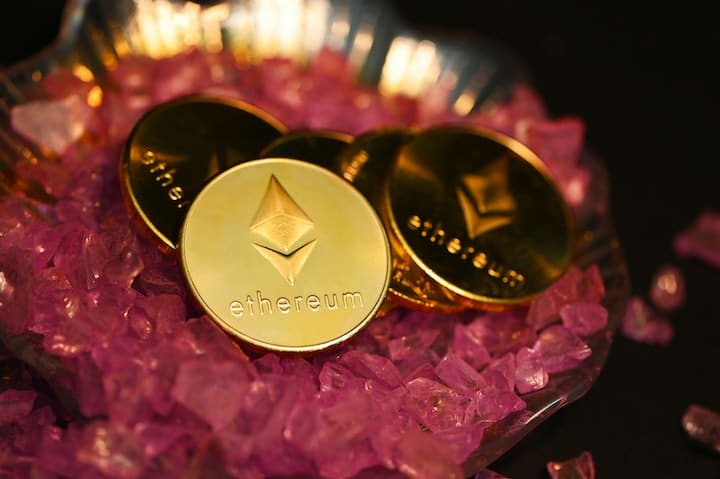Exploring the World of Cryptocurrency: Bitcoin, Ethereum, Blockchain, Mining, Altcoins, DeFi, Stablecoins, NFTs, Trading & Investment, and Regulation
Diving Deep into the Advancements and Challenges of Decentralized Digital Currencies and their Impact on the Financial Industry

Introduction to Cryptocurrency
Definition of Cryptocurrency
Overview of how Cryptocurrency works
Benefits and drawbacks of using Cryptocurrency
History and Origin of Bitcoin
How Bitcoin works
Advantages and disadvantages of using Bitcoin
Ethereum (ETH)
History and Origin of Ethereum
How Ethereum works
Advantages and disadvantages of using Ethereum
Ripple (XRP)
History and Origin of Ripple
How Ripple works
Advantages and disadvantages of using Ripple
Litecoin (LTC)
History and Origin of Litecoin
How Litecoin works
Advantages and disadvantages of using Litecoin
Bitcoin Cash (BCH)
History and Origin of Bitcoin Cash
How Bitcoin Cash works
Advantages and disadvantages of using Bitcoin Cash
Tether (USDT)
History and Origin of Tether
How Tether works
Advantages and disadvantages of using Tether
Cardano (ADA)
History and Origin of Cardano
How Cardano works
Advantages and disadvantages of using Cardano
Conclusion
Summary of different types of Cryptocurrency
Comparison between different Cryptocurrency
Future of Cryptocurrency and its impact on the global financial system.
Click here for a detailed training on these crypro currencies
Bitcoin (BTC)

Bitcoin is the first and the largest cryptocurrency by market capitalization.
The value of Bitcoin is determined by market demand, and its price can be highly volatile.
In comparison to the US dollar, Bitcoin has experienced significant price fluctuations in the past, with prices reaching an all-time high of over $64,000 in April 2021 and a low of under $3,000 in December 2018.
Despite its volatility, Bitcoin is widely considered to be a store of value and a hedge against inflation.
Click here to learn more on how to invest with Bitcoin
Ethereum (ETH)

Ethereum is a decentralized platform that enables the creation of decentralized applications and smart contracts.
In comparison to the US dollar, the value of Ethereum has generally trended upwards over time, though it has also experienced significant price fluctuations.
The demand for Ethereum has been driven by its use as a platform for decentralized finance (DeFi) applications and the growth of the non-fungible token (NFT) market.
Ripple is a cryptocurrency designed for use in the global payments industry.
In comparison to the US dollar, the value of Ripple has been relatively stable, with fewer price fluctuations compared to other cryptocurrencies.
Ripple has been adopted by several financial institutions for cross-border payments, which has helped to support its value.
Litecoin is a cryptocurrency that was created as a lighter and faster version of Bitcoin.
In comparison to the US dollar, the value of Litecoin has experienced significant price fluctuations, with prices reaching an all-time high of over $375 in December 2017 and a low of under $30 in December 2018.
Litecoin is widely considered to be a fast and efficient payment cryptocurrency, with lower transaction fees compared to Bitcoin.
Bitcoin Cash (BCH)
Bitcoin Cash is a cryptocurrency that was created as a result of a hard fork of the Bitcoin blockchain.
In comparison to the US dollar, the value of Bitcoin Cash has experienced significant price fluctuations, with prices reaching an all-time high of over $4,000 in December 2017 and a low of under $200 in December 2018.
Bitcoin Cash is designed to be a more practical and efficient version of Bitcoin for everyday transactions.
Tether (USDT)

Tether is a stablecoin pegged to the value of the US dollar, meaning that each Tether token is backed by a US dollar held in reserve.
In comparison to the US dollar, the value of Tether is designed to remain stable, with fluctuations limited to small deviations.
Tether is widely used as a safe haven for investors during periods of market volatility, and as a means of preserving the value of cryptocurrency holdings.
Cardano is a decentralized platform that enables the creation of smart contracts and decentralized applications.
In comparison to the US dollar, the value of Cardano has generally trended upwards over time, though it has also experienced significant price fluctuations.
The demand for Cardano has been driven by its focus on security and scalability, as well as its commitment to sustainable and environmentally responsible development
About the Creator
Nyagwachi Obiero
I'm an engineer with passion for climate change adaptability, circular economies and sustainable living in Africa. My research focuses on maximum material recovery from waste to enhance net zero and environmental conservation.
Enjoyed the story? Support the Creator.
Subscribe for free to receive all their stories in your feed. You could also pledge your support or give them a one-off tip, letting them know you appreciate their work.






Comments
There are no comments for this story
Be the first to respond and start the conversation.